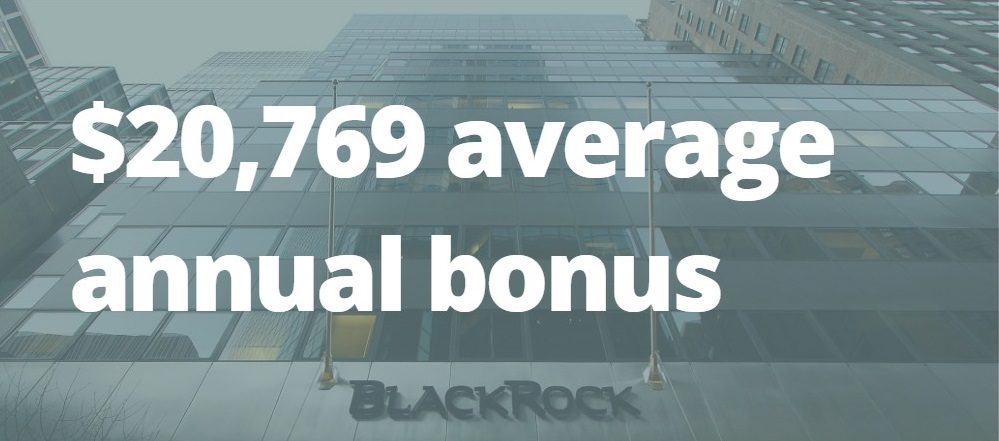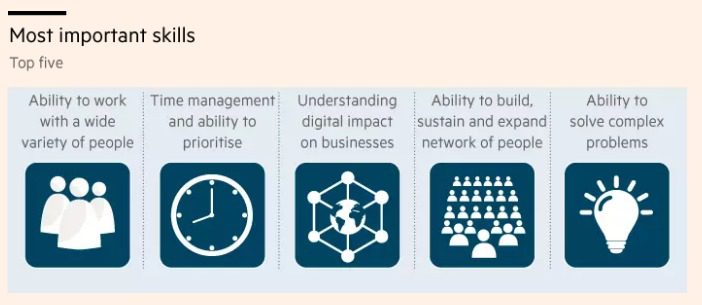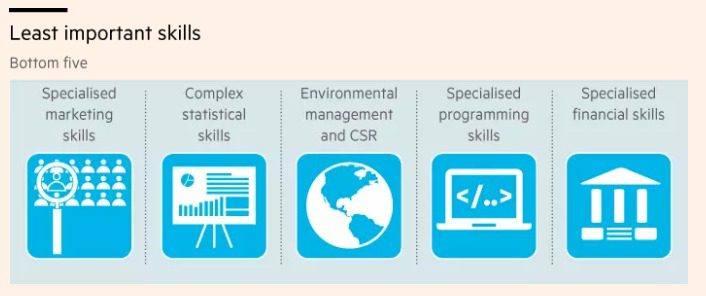Alumni Gift Supports Chicago Booth Svider Private Equity Program

A University of Chicago alum recently gave back to the Booth School of Business in a big way: Raymond Svider, a Managing Partner at international private equity firm BC Partners, presented the school with a $5 million gift, according to a press release. The money will go toward establishing the Svider Private Equity Program at the Polsky Center for Entrepreneurship and Innovation.
While the Polsky Center currently runs a variety of programs in private equity, the gift will help expand what is currently offered to better suit the increased needs and demands of students and alumni for both experiential and academic private equity learning opportunities. These enhancements include:
- Expanded opportunities for students to connect with private equity insiders through additional Entrepreneur-in-Residence positions and programming.
- Enhanced networking and educational opportunities for alumni.
- Broader distribution of Chicago Booth’s thought leadership in the industry.
“Chicago Booth was an ideal complement—both academically and culturally—to my undergraduate engineering background,” Svider said. “An MBA from one of the top programs in the U.S. helped me gain access to the most attractive private equity jobs after graduation—my Booth degree was an ideal stepping stone, an entry ticket to my ideal career.”

Raymond Svider/Photo via Chicago Booth
According to Chicago Booth, the Svider Private Equity Program has three main goals:
- Increase the resources available to students and alumni pursuing private equity careers.
- Strengthen Booth’s private equity alumni community.
- Build Booth’s national and global brand as a hub for private equity education.
“Raymond’s generous gift will allow us to better support our students and alumni in the private equity space across the globe,” said Steven N. Kaplan, Faculty Director of the Polsky Center and Neubauer Family Distinguished Service Professor of Entrepreneurship and Finance at Booth. “The Svider Private Equity Program will greatly expand our ability to offer innovative hands-on and academic learning opportunities to complement the fundamentals of the classroom.”
MBA Job Opportunities: BlackRock

Though many MBA grads are passionate about their career prospects, those driven to work in the financial industry may be more reticent to commit to a life of uncomfortable suits and harsh fluorescent lights. A TINYpulse study found that employees at financial service companies have some of the lowest career satisfaction rates out there, despite stable salaries. The study put the amount of financial service employees who are happy with their work environment at less than 22 percent. In fact, an eFinancialCareers study found that one third of bankers hate their jobs. So, does an MBA and a penchant for finance mean a life of tolerating punishing work hours with little recognition from colleagues and superiors? Not necessarily.
Recent MBA grads with a penchant for finance will be pleased to learn that BlackRock, Inc., one of the largest asset-management companies in the world, provides a different kind of environment from the majority of financial institutions. Business Insider consistently ranks BlackRock as one of the premier financial employers in the U.S, writing, “The firm is big on employee development plans and employee engagement. For example, employees get to pitch ideas to senior executives at the two-day Innovation Summit, which helps spur new products for retirees and connect coworkers across different departments, according to LinkedIn.”
Why Work at BlackRock?
In a Business Insider interview, Jeff Smith, Senior Managing Director at BackRock’s Head of Global Human Resources Group, called BlackRock, “… an incredibly passionate place with a very clear sense of purpose that comes from Larry Fink, our founder and CEO, to everyone else in the company.”
BlackRock is renowned for its relaxed corporate culture, and 73 percent of its employees report high job satisfaction. The company employs over 130 investment teams in 30 different countries, so there is ample opportunity to join BlackRock beyond its New York City headquarters.
BlackRock’s effort to create a successful and diverse environment has been nothing short of empowering. Since 2015, over 2000 of the company’s prominent employers joined in the “Driving Better Decisions” initiative, which aims to help remove “unconscious bias” in decision-making, according to the official BlackRock website, as well as rethink the way human resources recruits and develops diverse talent. While the gender ratio at the company is still predominantly male, BlackRock has also made a concerted effort to increase female employment in senior management roles to 30 percent by the end of the decade, signing the HM Treasury’s Women in Finance Charter.
Pay Day
According to recent PayScale survey figures, MBA grads, despite their role, earn around $86,000 annually at BlackRock. These figures fluctuate depending on the specific role, rising to as much as $316,000 per year for investment strategists. According to the same data, bonuses at the company are also pretty exceptional. Portfolio managers reported an average bonus of $39,000 per year, while even the lowest bonus figures neared $10,000 per year.

Figures according to PayScale data.
Interning at BlackRock
For students nearing the end of their higher education journey, BlackRock offers summer internships for a glimpse of life at the company. BlackRock’s global Analyst Program is a two year-long entry level program for new graduates. The program kicks off with a training in New York City. Throughout the program, trainees will develop their skills in communicating with clients and understanding how to help them manage fiduciary matters.
BlackRock offers several other internships, and is conscious of promoting diversity in their industry. The Founders Scholarship provides merit rewards and a summer internship to students who identify as Black, Hispanic, Native American, LGBTQ, or disabled. Merit awards for this scholarship can be as high as $15,000.
Getting Hired
In an interview with eFinancialCareers, Jonathan Jones, director of global campus recruiting at BlackRock, gave some insight into how interested candidates can get their foot in the door at the company.
“What I think makes a BlackRock person stand out though, is that we look for people who embody or represent our principles. For example, we have a commitment to innovation. Innovation—original thinking, problem solving, and creativity – is central to our identity. Equally, we have a strong commitment to teamwork, and we look for people who can join the dots between our disparate activities in ways which can solve problems for our clients,” Jones said.
According to Jones, BlackRock hires many recent university graduates with Bachelor’s degrees, and the company also hires MBA candidates who have work experience that is relevant to specific positions, such as real estate and equity research.
A recent highlight from Clear Admit on the best business school’s for MBA grads that want to break into the industry that these five schools produced the most finance employees:
- Columbia Business School
- University of Chicago Booth School of Business
- New York University Stern School of Business
- University of Pennsylvania’s Wharton School
- Cornell Johnson Graduate School of Management
BlackRock has been actively recruiting at the world’s high ranking universities, stopping by Columbia Business School as recently as last month for an information session. Read here to find out for more events the company is hosting in the coming weeks and months and check out more about a potential career with BlackRock below.
Chicago Booth Alum Pair Give $75 Million to Their Alma Mater

The University of Chicago Booth School of Business’s coffers just grew—and its top scholars will be called by a new name—thanks to a $75 million alumni gift announced today. In recognition of the gift, students who earn highest academic honors while at Booth will be known as the Amy and Richard F. Wallman Scholars, after donors Amy Wallman, MBA’75, and Richard Wallman, MBA’74. The Wallmans’ gift will be used to support several initiatives, including scholarships for students in the full-time, evening, weekend, and executive MBA programs, as well as enhanced co-curricular programming, faculty research, and emerging priorities.
“We have great affection for the University of Chicago—the Booth School of Business is world class, and we hope our gift makes it even better,” Amy Wallman said in a press release. “The Booth School is very special to us not only because we met there,” Richard Wallman added, “but also because we have sponsored 26 scholarship recipients over the years and are delighted to have had a modest impact on these students’ lives.”
Amy Wallman began a 26-year career at EY after completing her Booth MBA, retiring as an audit partner in 2001. She later served as director at pharmaceutical firm Omnicare from 2004 to 2015. Richard Wallman began his post-MBA career with the Ford Motor Company and went on to serve as chief financial officer and senior vice president of Honeywell International Inc., a diversified industrial technology and manufacturing company, and its predecessor AlliedSignal, from 1995 to 2003. He also held senior financial positions with IBM and Chrysler Corporation.
Dean Madhav Rajan, who took the helm at Chicago Booth this past July, welcomed the generous gift, calling it an “endorsement of Chicago Booth’s enduring strengths, in our programs and our extraordinary faculty.” Continued success rests on maintaining and extending the school’s prominence in research and in developing the world’s next leaders, he added.
“The Wallman Scholars will be recognized as preeminent in this cadre of future leaders, modeling the potential and the spirit of their benefactors,” Rajan said. The permanent designation will be bestowed upon graduating MBA students who earn high honors at Booth. It will also be given retroactively to top alumni, according to the school’s press release.
YOU MIGHT ALSO LIKE: Chicago’s Best 1-Year MBA Programs
The Wallmans, for their part, shared that they were impressed with Rajan’s vision for the school and hope their gift will help advance that vision. “This is a unique opportunity to make a difference in the careers of Chicago Booth students for generations to come and express our gratitude to those who have helped us,” Amy Wallman said in the press release. “Our parents were great role models to both of us; they gave us the confidence that we could accomplish anything.”
Richard Wallman also shared appreciation for the impact working for former Honeywell International Chairman and CEO Larry Bossidy had on his career and his life and thanked friends at Centerbridge Partners and Merrill Lynch, whom he called “key enablers of this gift.”
For more about the Wallmans’ $75 million gift to Chicago Booth, click here.
This article has been edited and republished with permissions from Clear Admit.
How An MBA Degree Can Land You a Job at Pfizer

MBA grads looking to make headway in an ever-expanding field with massive growth potential should look no further than healthcare and pharmaceuticals. There’s a reason more and more business school graduates have begun to pursue pharma over more tried-and-true post-MBA paths like real estate, consulting, and finance: the pharma industry offers a myriad of opportunities. There’s an almost inexhaustible supply of interesting problems to solve while earning boast-worthy salaries.
When it comes to major industry players, Pfizer is one of the undisputed global pharmaceutical leaders. Many of its products have burrowed their way into popular consciousness—both figuratively and literally. Lipitor, Viagra, Zoloft, Xanax, Advil, ChapStick, Preparation H, and Robitussin are iconic brands unto themselves.
Below, we’ll take a deeper look into exactly how MBAs can gain a foothold at Pfizer.
Why Do MBAs Love Pfizer?
Pfizer’s name brand recognition just so happens to correlate with a stellar internal reputation among employees, both past and present. Forbes, Fortune, LinkedIn, CareerBliss all consistently rank Pfizer as one of the happiest, most employee-centric, and/or most in-demand employers in the American pharma space.
In an interview with the Stevens Institute of Technology blog, Pfizer Senior QA Manager Bill Mestrandrea, a Stevens MBA alum, spoke of the deep camaraderie that he has with his fellow MBAs at Pfizer, comparing it to a “band of brothers.”
He elaborates: “We’re all in it together. I’ve met people from other departments who my work influences, and they’ve influenced my work as well. It gave me a better understanding of the network within Pfizer, and how it all comes together to form one company, always working in support of our patients.”
An anonymous former Pfizer employee took to Glassdoor to extol the company’s virtues: “If you can keep up with the fast pace and are not overly sensitive, Pfizer is a great to work. Everyday is an adventure and the benefits are excellent.” An anonymous Technical Specialist in the New York branch lauded Pfizer’s “great gym, clinic, cafeteria, and day care” in a Forbes profile.
Payscale reports that MBAs earn an average starting salary of around $121,000. Pfizer prides itself on a competitive compensation and benefits package that rewards employees “based on the contributions they make to [the] business.”
The company offers a number of in-house health and wellness programs, including health and disability insurance, medical screening, free or reduced-cost vaccinations, discounts on Pfizer products, and nutrition and fitness counseling. As part of the benefits package, Pfizer also offers access to colleague-directed retirement funds, company contributions to retirement financial vehicles, life insurance, and financial planning education.
Working at Pfizer
If there’s a common thread that runs through day-to-day life for all MBA grads at Pfizer, no matter their function, it’s that they’re all expected to move quickly and keep up with the constant demand. Pfizer is sympathetic and has sought out solutions to help acclimate first-year MBAs—namely, its Summer Associate Program, which has placed alum in full-time roles for the past 15 years.
Pfizer’s 10-12 week Summer Associate Program recruits and provides “first-year MBA students from top-ranked business schools … with a variety of unique experiences that will serve to develop and broaden critical skill sets and competencies as they progress their development towards leadership roles within Pfizer.”
Students are assigned challenging projects within Consumer Marketing, Corporate Audit, Corporate Finance, Global Procurement, Pfizer Consulting & Execution, and Pharmaceutical Marketing. By the end, Summer Associates “gain a wealth of valuable industry knowledge, networking opportunities, and life experiences.”
According to Pfizer, “MBA Summer Associates receive an industry competitive salary, housing support options and the prospect of conversion to a full-time opportunity upon the completion of their MBA degree.”
Jane Scholl (Columbia Business School ’12), whose healthcare resume stemmed from a desire to “improve the lives of others,” discussed the way her 2012 internship led to a position with the Marketing Rotational Program the following year:
“Though I only spent three months with Pfizer during the summer, I was treated as a valued member of the team rather than an intern. I was encouraged to share my thoughts and ideas even if they differed from those of other colleagues. I worked on meaningful projects that contributed to the business, and some of my recommendations were implemented before the end of the summer.”
Oindrila Sardar (Chicago Booth ’11), a Senior Manager at Pfizer’s Established Products Marketing Platform, discussed the relationship she had with the rotation managers during her Summer Associate internship:
“My rotation managers have played a critical role in my development with weekly one-on-one meetings and their insightful project guidance. They have been receptive to my interests and have matched them with meaningful assignments Throughout my rotations I have worked with cross-functional colleagues from many areas of the company which has helped me further understand Pfizer and its structure. I have been surprised by the high level of trust and responsibility given from the very beginning.”
Landing a Job at Pfizer
It’s pretty straightforward: Pfizer’s Summer Associate Internship is a surefire way for MBAs to get hired. In fact, 16 out of its recent 25 summer associates were extended full-time offers. That said, there’s plenty of recruitment that takes place outside the sacred intern space.
In the fall, Pfizer aggressively targets top MBA programs, particularly in the Mid-Atlantic and Northeast close to its New York HQ. The company is interested in drawing from a pool of diverse and competitive first-year applicants, especially those with a taste for finance, marketing, global supply, and general management. Although previous pharma experience will make your application more competitive, Pfizer is equally interested in applicants with compelling reasons for a career change.
Interviews begin in January and run until March. Pfizer sometimes conducts group interview sessions in which four or five applicants discuss issues with staff members. This process is designed to understand which folks will make a meaningful contribution to a Pfizer culture with many distinct and occasionally contentious points-of-view.
Top MBA Programs for Producing Founders: 2017-2018 Report

Recently, PitchBook released its latest 2017-2018 Top 50 Universities Report. The ranking focused on those universities that produced the “ultimate building blocks of the venture industry: founders.”
This ranking is vastly different from rankings of top schools for entrepreneurship by U.S. News & World Report, Princeton Review, and Entrepreneur Magazine, all of which focus on factors like peer assessment surveys, curriculum, and entrepreneurial study options. Instead, PitchBook looked at a single criterion: founders of companies who received venture capital (VC) funding between January 1, 2006, and August 18, 2017, and where they went to school.
The report provides a fairly detailed breakdown of top undergraduate programs, companies (by capital raised), MBA programs, female founders, unicorns (companies that have attained the coveted $1 billion evaluation), and more. This article will focus solely on the results that relate to MBA programs, including information on female founders and unicorns.
Top MBA Programs
For the 2017-18 academic year, the top 10 MBA programs to produce founders who received VC funding were ranked as follows:
- Harvard Business School (HBS): 1,203 entrepreneurs, 1,086 companies, and $28,495 million raised
- Stanford Graduate School of Business (GSB): 802 entrepreneurs, 716 companies, and $18,259 million raised
- University of Pennsylvania’s Wharton School: 666 entrepreneurs, 585 companies, and $16,001 million raised
- INSEAD: 455 entrepreneurs, 406 companies, and $7,795 million raised
- Northwestern’s Kellogg School of Management: 445 entrepreneurs, 417 companies, and $5,680 million raised
- Columbia Business School: 441 entrepreneurs, 410 companies, and $5,465 million raised
- MIT Sloan School of Management: 437 entrepreneurs, 384 companies, and $7,797 million raised
- University of Chicago Booth School of Business: 405 entrepreneurs, 368 companies, and $5,470 million raised
- University of California – Berkeley Haas School of Business: 344 entrepreneurs, 314 companies, and $5,191 million raised
- UCLA Anderson School of Management: 247 entrepreneurs, 232 companies, and $3,957 million raised
HBS stands out immediately for producing founders who receive VC funding. Harvard produced twice as many founders as its next closest competitor, and those founders pulled in $10M more in funding for their 1,000+ companies.
As for the reason behind Harvard’s success, there are multiple elements that contribute to its production of entrepreneurs. The school is home to the Arthur Rock Center for Entrepreneurship, which offers programs for budding entrepreneurs including curricular offerings (over a dozen courses), a New Venture Competition (which offers $300,000 in cash prizes), the Rock Accelerator, the Harvard Innovation Lab, and even a Loan Reduction program that supports graduating entrepreneurs with a one-time, need-based award of $10,000 to $20,000. HBS’s extensive alumni network also provides students with connections with managing directors, partners, and founders of top VC firms including Bain Capital Ventures, Apax Partners, and Accel Partners.
Another standout for the 2017-2018 year was INSEAD. The only non-U.S. MBA program to appear in the top 10, it also moved up a spot this year over last. INSEAD grew from 393 entrepreneurs, 348 companies, and $6,131 million in capital raised to 455, 406, and $7,794 million respectively.
INSEAD’s students are supported by the INSEAD Centre for Entrepreneurship (ICE), which was founded in 2003. The center offers MBA students a chance to participate in the INSEAD Venture Competition (IVC), Entrepreneurship Bootcamps, and the Entrepreneurship Teaching Innovation (ETI) Fund, which supports the development of the “Your First Hundred Days” elective for budding entrepreneurs.
Another MBA program of note is MIT Sloan School of Management, which was fourth in capital raised on this year’s PitchBook ranking. This could indicate more successful companies coming out of MIT or a higher percentage of VC funding available to Massachusetts’ graduates.
Some of the unique entrepreneurship opportunities available from other top programs include Stanford GSB’s Startup Garage, an intensive, hands-on project course for MBA students, as well as MIT Sloan’s Martin Trust Center for MIT Entrepreneurship, which includes an accelerator, coaching, and various events. Finally, the Penn Wharton Entrepreneurship Center offers resources, events, and courses for MBAs looking to explore, develop, launch, and scale a startup.
Top Female Founders & Unicorns
PitchBook also reviewed the top MBA programs for female founders. Once again, HBS and Stanford GSB ranked first and second, respectively, with 202 and 119 female founders. Columbia Business School ranked third with 77, Wharton ranked fourth with 71, and MIT came in at fifth with 60 female founders.
As for the unicorns, the top five MBA programs are similar to the previous lists.
- HBS: 22 entrepreneurs, 17 companies
- Stanford GSB: 14 entrepreneurs, 11 companies
- Wharton: 11 entrepreneurs, 8 companies
- INSEAD: 8 entrepreneurs, 7 companies
- MIT Sloan: 6 entrepreneurs, 6 companies
This article has been edited and republished with permissions from Clear Admit.
What Employers Do and Don’t Look for In An MBA Graduate

Earning an MBA can often be a huge boost for graduates entering the job market, from opportunities for upper-level management roles to increased salaries.
But securing that job post-graduation can still be an uphill climb. Even with an MBA, students often find themselves struggling to understand how they fit within a changing job market. As the market continues to shift, understanding exactly what employers are looking for in their MBA applicants—and what they aren’t looking for—can be crucial for graduates as they search for and apply for their perfect job.
Thankfully, a recent survey from the Financial Times looked at the job market from the perspective of employers: what they are in need of in terms of MBA job seekers, and how MBA applicants can be more realistic regarding for the roles for which their new degree will qualify them. Unfortunately for many MBAs, the survey results may come as a surprise when they reflect on what skills they hoped their degree would offer in the first place. Yet, a critical understanding of what employers are and aren’t looking for can help job seekers re-frame the way they understand themselves and their prospective careers.
What Employers Want
The survey looked into the most important skills that employers look for in new MBA talent. Perhaps surprisingly, the five most important skills determined by the survey were actually not core MBA subjects. “Soft skills,” such as the ability to prioritize (desired by 72 percent of employers), the ability to work with a variety of people (76 percent of employers), and the ability for employees to effectively manage their time were the most desired and difficult to find, according to the survey.
The most difficult skills to recruit—the skills companies are sorely in need of—were most commonly named as the ability to use social media for the business’ needs, financial forecasting, big data analysis, brand storytelling skills, and the ability to train others.

The five most important skills, according to the Financial Times survey.
What Employers Don’t Want
The least important skills for an MBA, according to the survey, were those most often thought of as “hard skills,” such as specialized skills in marketing, finance, programming, or complex statistical skills. Similar skills were mentioned as the least difficult skills to recruit—the ability to solve complex problems and specialized marketing skills are often seen as common fare among MBA graduates and therefore a candidate with such skills won’t necessarily stick out.
Many surveyed employers said that past experience with MBA-holding employees had left them disappointed, with the degree-holder having difficulty turning concepts into practice. Many employers said that, while an MBA degree may be a nice bonus for a job candidate, the overall hiring decision is more based on the individual’s industry qualifications, rather than their degree.

These skills may be less necessary than MBA grads anticipate.
What Do You Need To Do?
So far, the results of the Financial Times survey may be disappointing for MBAs who have worked hard for their business education. No need to get concerned just yet, however. The employer response may have less to do with the idea that the skills of an MBA grad aren’t necessary in a company and more to do with a perception gap; the belief that business schools will not teach students the skills they need, and therefore that they do not need MBAs at their company.
Most of the work in convincing a skeptical employer your degree is worthwhile is simply convincing them that the skills learned as part of your degree are the same ones they desire. Many business schools are attempting to change the way MBAs are perceived and the type of skills that are associated with graduates. Julie Morton, Associate Dean of Careers Services and Corporate Relations at Chicago’s Booth School of Business, has already set half of her team to the work of promoting the value of MBA-holders in the workforce. Overall, much of the work will fall on business schools to market their graduates as holding the skills most desired by recruiters.
On a more individual level, however, the survey results also indicate that MBA grads can be more judicious in the roles that they apply to and the way they market themselves to potential employers. By focusing on the skills desired most—and the hardest to recruit—and ensuring that employers know these are the exact skills an MBA education offers, both employer and employee can benefit.
